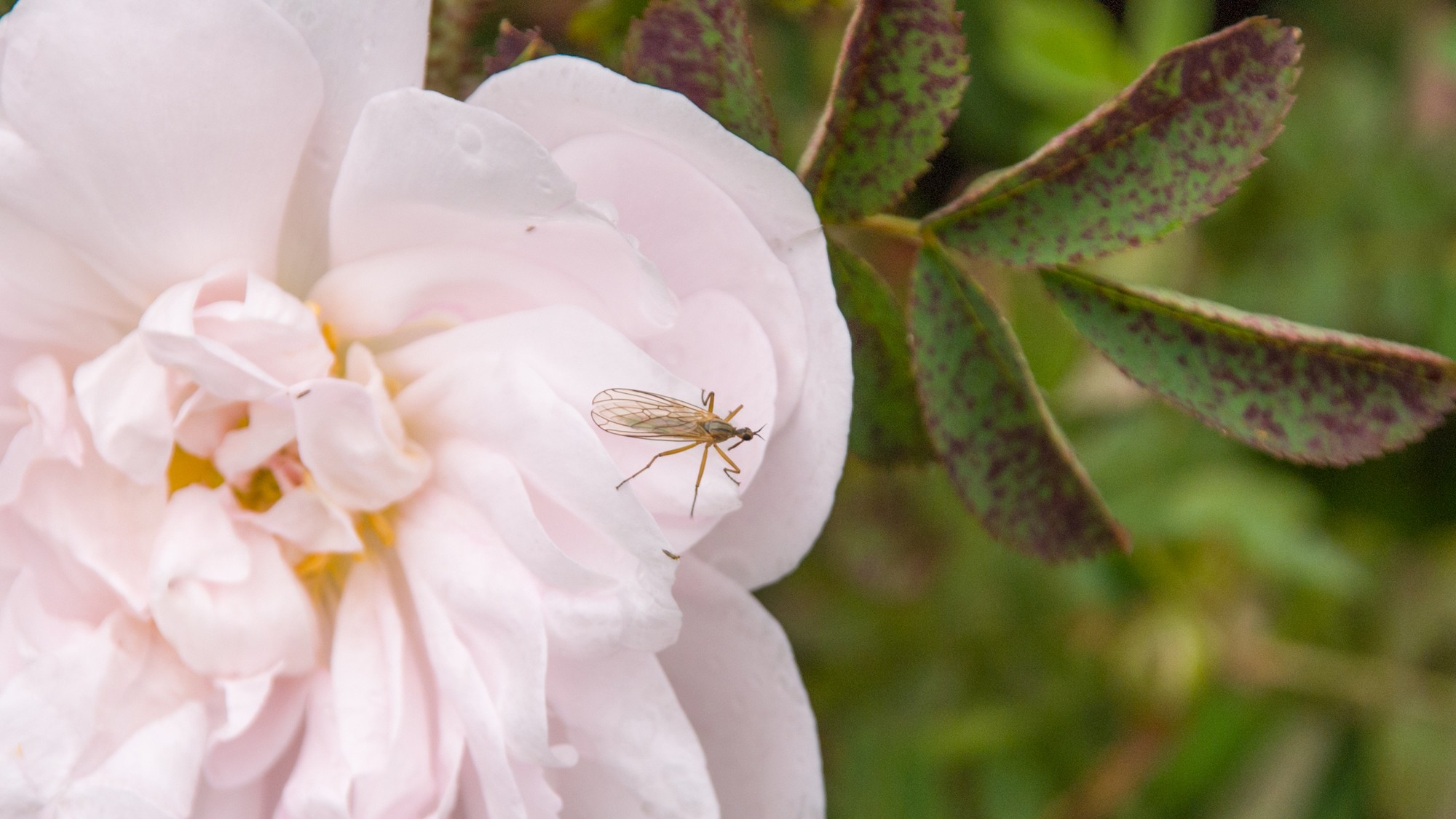A tropical skin disease is making the rounds in the US
Leishmaniasis is endemic to the country and can cause ulcers and disfiguration


A free daily email with the biggest news stories of the day – and the best features from TheWeek.com
You are now subscribed
Your newsletter sign-up was successful
A parasite capable of disfiguring skin may be endemic to the U.S.
Leishmaniasis is a condition spread through sand fly bites. It causes people to “develop ulcers on their skin,” that sometimes start like “a little tiny volcano with a crater in it,” Mary Kamb, a medical epidemiologist at the Centers for Disease Control and Prevention (CDC), told CNN. The parasite affects the nerves, so the welts may not be painful, but they could cause permanent scaring and disfigurement. This could also lead to “all sorts of issues relating to depression and stigma,” parasitologist David Molyneux of the Liverpool School of Tropical Medicine in England, told Scientific American.
The disease is endemic to the Middle East, Asia, Africa, and Latin America. Until recently, it was not known to be endemic to the U.S. with the few cases within the country assumed to have been contracted by travelers. However, “over the past decade or so, reports started cropping up of cases in people with no history of travel outside the U.S.,” Scientific American continued. Many of the documented cases were in Texas. “We cannot say that it is exclusive to Texas, but from the samples that were submitted to CDC, the majority were from Texas," Vitaliano Cama, a senior adviser with CDC’s Division of Parasitic Diseases and Malaria, told NBC News.
The Week
Escape your echo chamber. Get the facts behind the news, plus analysis from multiple perspectives.

Sign up for The Week's Free Newsletters
From our morning news briefing to a weekly Good News Newsletter, get the best of The Week delivered directly to your inbox.
From our morning news briefing to a weekly Good News Newsletter, get the best of The Week delivered directly to your inbox.
While the chances of contracting the disease within the U.S. are still low, case numbers are rising. Warming temperatures are likely to cause sandflies to move north as well, thus spreading the disease. “Our understanding of leishmaniasis acquired in the U.S. is still really evolving,” said Joshua Lieberman, assistant director of the molecular microbiology clinical laboratory at UW Medicine, told NBC News. The good news is the most prevalent form of the disease in the U.S. is still “relatively mild.”
A free daily email with the biggest news stories of the day – and the best features from TheWeek.com
Devika Rao has worked as a staff writer at The Week since 2022, covering science, the environment, climate and business. She previously worked as a policy associate for a nonprofit organization advocating for environmental action from a business perspective.
-
 Labor secretary’s husband barred amid assault probe
Labor secretary’s husband barred amid assault probeSpeed Read Shawn DeRemer, the husband of Labor Secretary Lori Chavez-DeRemer, has been accused of sexual assault
-
 Trump touts pledges at 1st Board of Peace meeting
Trump touts pledges at 1st Board of Peace meetingSpeed Read At the inaugural meeting, the president announced nine countries have agreed to pledge a combined $7 billion for a Gaza relief package
-
 Britain’s ex-Prince Andrew arrested over Epstein ties
Britain’s ex-Prince Andrew arrested over Epstein tiesSpeed Read The younger brother of King Charles III has not yet been charged
-
 Europe’s apples are peppered with toxic pesticides
Europe’s apples are peppered with toxic pesticidesUnder the Radar Campaign groups say existing EU regulations don’t account for risk of ‘cocktail effect’
-
 Is the US about to lose its measles elimination status?
Is the US about to lose its measles elimination status?Today's Big Question Cases are skyrocketing
-
 A real head scratcher: how scabies returned to the UK
A real head scratcher: how scabies returned to the UKThe Explainer The ‘Victorian-era’ condition is on the rise in the UK, and experts aren’t sure why
-
 Trump HHS slashes advised child vaccinations
Trump HHS slashes advised child vaccinationsSpeed Read In a widely condemned move, the CDC will now recommend that children get vaccinated against 11 communicable diseases, not 17
-
 Vaccine critic quietly named CDC’s No. 2 official
Vaccine critic quietly named CDC’s No. 2 officialSpeed Read Dr. Ralph Abraham joins another prominent vaccine critic, HHS Secretary Robert F. Kennedy Jr.
-
 This flu season could be worse than usual
This flu season could be worse than usualIn the spotlight A new subvariant is infecting several countries
-
 Scientists have developed a broad-spectrum snake bite antivenom
Scientists have developed a broad-spectrum snake bite antivenomUnder the radar It works on some of the most dangerous species
-
 Bluetoothing: the phenomenon driving HIV spike in Fiji
Bluetoothing: the phenomenon driving HIV spike in FijiUnder the Radar ‘Blood-swapping’ between drug users fuelling growing health crisis on Pacific island
